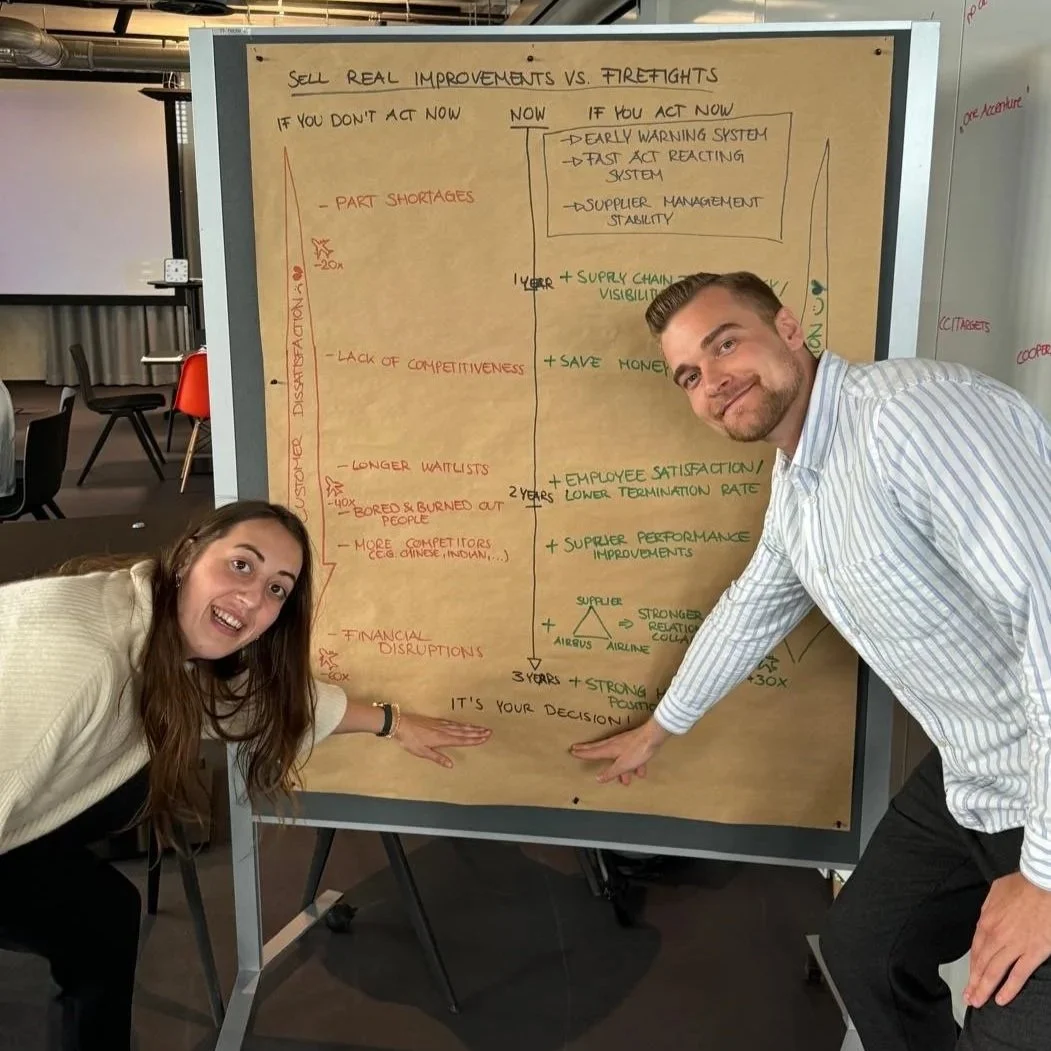Why do Meetings feel So heavy ?
You have done everything right. ✅
You have built a strong team, set clear goals, done the trainings, bought the softwares …even AI.
In theory — it should work out.
And yet… it doesn’t feel like it’s working in the actual meetings.
Or at least, not as well as you want it to.
🌀 You feel drag — conversations loop, projects stall, momentum leaks… even when everyone is trying their best.
🔓 You see potential — there’s talent and brilliance in the room.. but it’s not translating into collaboration, ownership, ideas, or momentum.
🌊 You are pulled by emotional undercurrents — The conversation covers the topline … but the polite frustration, the silent disengagement and the weight of what’s unsaid is what is truly shaping the room.
🔄 You are caught in business as usual — the team keeps operating the way it always has …but the next chapter is calling and the way of working hasn’t evolved to meet it.
And no matter how hard you try to lead…it still feels like you’re the only one pushing forward.. 🏋
That´s why Helen & Co´s mission is to help teams like yours tranform endless, boring, and chaotic meetings into strategic, human, outcome-driven sessions.
The Root cause of bad meetings
Spoiler : It is not a leadership mistake
Bad meetings are NOT the norm because people don’t care.
Bad meetings are NOT a sign of low intelligence, lack of commitment, or insufficient effort.
In fact, most people in those rooms are trying very hard to do the right thing.
Bad meetings are so common because of complex human dynamics.
Here’s what that I mean :
Person 1
Internal environment (Psychological safety, sense of power/purpose, goal expectation, experience etc)
External environment (tech, team, boss, company, weather)
Person 2
Internal environment (Psychological safety, sense of power/purpose, goal expectation, experience etc)
Person 3
Internal environment (Psychological safety, sense of power/purpose, goal expectation, experience etc)
Every person walks into a meeting carrying their own ideas, emotions, assumptions, and expectations. Those invisible layers begin interacting with everyone else’s — in real time.
Add in external factors like technology, room setup, internal politics, timing, pressure, or context… and suddenly you have a lot happening beneath the surface.
It’s simply too much for a regular meeting participant to track and meaningfully contribute at the same time.
So people drop pieces.
They disengage.
They default to habits.
And things go off track — even with the best intentions.
Here is what actually works !
Facilitation
How to transform boring, chaotic meetings into strategic, human, outcome-driven sessions
A good agenda, clear goals, a supportive team, are all essential.
And still — on their own — they’re not enough.
Because they are theoretical.
Meetings are LIVE.
They unfold in real time, shaped by who speaks, who doesn’t, what’s avoided, what’s assumed, and how safe it feels to think out loud together.
This is where facilitation comes in.
Facilitation is the practice of shaping human dynamics as they unfold — so the group can keep moving toward its intended outcome with less friction and more clarity.
It’s not about controlling the room.
It’s not about teaching or consulting.
And it’s not about adding complexity.
It’s about structuring the people and the process — so leaders and teams can focus on the content.
When meetings are facilitated well:
Conversations stop looping and start landing
Decisions become clearer — and stick
Tension is addressed before it derails momentum
Participation broadens beyond the loudest voices
Leaders stop carrying the room alone
👉 It is the same people, in the same room, learning to work differently — together.
Want to know more ? Check out our blog article :
→ Top 10 reasons why facilitation is so powerful !

When Facilitation changes everything
💭
We spend more time talking about decisions than actually making them.
When conversations loop, it’s rarely because people don’t care.
It’s usually because the conversation isn’t intentionnaly designed for progress.
👉 Facilitation brings the structure that help groups think together clearly — so decisions can land, momentum can build, and progress stops stalling.
Teams often notice:
“We didn’t rush — we just finally moved.”
💭
I feel like I’m the one pulling forward.
Leadership shouldn’t feel like dragging everyone forward alone.
When one person carries the thinking, the alignment, and the emotional load, progress becomes exhausting — and fragile.
👉 Facilitation redistributes the weight, activating the collective intelligence of the group so ownership, insight, and momentum are shared.
Leaders often say:
“It finally felt like the team was moving with me — not behind me.”
💭
We talk a lot, but we’re not getting to what actually matters.
Many meetings sound productive on the surface — timelines, tasks, updates — while the real drivers stay unspoken underneath.
👉 Facilitation helps teams go beneath the surface safely, naming what’s actually shaping the work so it can be addressed without blame, tension, or things blowing up.
Teams often reflect:
“That was the first time we talked about what was really going on.”
💭
The old way doesn’t work anymore.
There are moments when pushing harder isn’t the answer.
What’s needed is a pause — not to stop, but to recalibrate.
👉 Facilitation creates space to step out of habit, reflect together, and choose a way forward that fits the current reality — not the past one.
Teams often say:
“That gave us room to breathe — so we could come up with our next steps.”
That’s me — show me my next step !
About Helen & Co
Hi there — I’m Helen, founder of Helen & Co.
I work with leaders and teams to have the conversations that actually matter without drama. The ones that don’t resolve themselves through more meetings, better slides, or polite agreement.
My work stands at the intersection of strategy, facilitation, and human behavior — creating the conditions for honest conversations, clean decisions, and real progress across teams, hierarchies, and perspectives.
Because when emotional friction is reduced, decisions move faster, collaboration feels lighter, and meetings finally support progress and flow instead of draining it away.
About our work
There are different types of facilitation.
My facilitation is for when “nice & polite” isn’t working and getting it right matters.
Call me when :
I’m at my best when the stakes are real and the conversation actually matters.
Contact me when:
✅ conversations keep looping without landing
✅ something important isn’t being said
✅ the group looks calm on the surface but tense underneath
✅ decisions are blocked by unspoken dynamics
✅ being “nice & polite” has stopped working
✅ clarity and progress matters more than comfort
Curious how it all started ?
Not the Right Fit If :
My work isn’t about hype, performance, or feel-good facilitation.
I’m not the right fit if you’re looking for:
❌ cheerleading or motivational energy
❌ unstructured “let’s see what happens” sessions
❌ performative vulnerability
❌ brainstorming without a clear purpose
❌ reassurance without change
Testimonials
Frequently
asked
questions
-
None of the above — and a bit of all three.
Facilitation focuses on how people work together in real time.
I don’t tell teams what to think or do. I structure the process so clarity, decisions, and alignment can actually emerge.
-
Great question ! I have a full blog post on this, but here is the summary.
Workshops are a type of meeting.
Facilitation is a way to run any meeting.
It focuses on human dynamics: who speaks, who doesn’t, what’s unsaid, and how decisions really get made.
That’s why clients often say :
“We’ve talked about this before… but this felt completely different.”
-
Not at all — it usually does the opposite.
I have a full blog post on this, but here is the breakdown.
Being a leader was never supposed to mean that you are the one carrying everything alone.
Leaders take care of the vision and the direction of the meeting.
A facilitator take care of the process — the flow, the dynamics, the participation — so the leader doesn’t have to hold everything at once.
Think of me like a co-pilot, I am not here to drive for you. I am here to give you directions so that you don´t crash the car while looking at the map.
Most leaders tell me it feels like finally having their hands free again.
-
Whether you start with a discovery call or jump in directly with a booking inquiry, the process unfolds like this:
You reach out 💭
You share what’s going on and what you’d love to see change.We talk 🤝
We make sure we’re aligned — on context, outcomes, dates and whether this is the right fit during the customization call.I send a proposal (optional)
If you need it for internal conversations or approvals, I formalize what we talked about in an official proposal.I send the digital contract + invoice 📝
I formalize all the details and expectations in a digital contract. Once you accept, I send you the official invoice and payment link.
You’re officially booked 🎉
Once the contract is signed and payment is received, you are officially on the H&Co calendar ! *
I craft the experience behind the scenes ✨
I reverse-engineer and craft the experience most likely to bring you and your team towards your goal.I send you the game plan 👾
You receive a clear, meeting overview and agenda 2–3 days before the session so that you know what to expect.We go live ! 🎬
We get to work — live, focused, and very human.
Simple, structured, and designed to keep everybody calm all the way through 😎
*Note :
Signed Contract + Payment are due at least 10 days before the first session
Cancelled bookings are fully refundable at 14 days notice.
One free reschedule is automatically included with each booking
-
Internal teams usually want to support initiatives like this — they just need it framed in language that speaks to their priorities.
So you might need to translate it for them.
Facilitation supports things internal teams already care deeply about:
Better, faster, clearer decisions
→ Less rework, fewer escalations, stronger accountabilityFewer wasted meetings
→ Research shows between 30–72% of meetings are considered ineffective.→ AKA, most people waste about half of their work week in bad meetings
→ A 2h meeting for a team of 5 ≈ focus session with me.
This adds up quick ! 💰
Stronger leadership effectiveness
→ Leaders spend less time managing dynamics and more time leading (leadership attention is scarce and expensive, remember the math)Inclusion and psychological safety
→ Helps organizations live up to the diversity and inclusion commitments they’ve already made — not just document themI have downloadable guides ready on the blog but if you are still stuck, I’m happy to:
Adjust contractual language to fit procurement or legal requirements
Join a brief approval call to answer questions directly
The goal isn’t to add another layer of complexity — it’s to make everyone’s job easier.
Yours and theirs.
-
YES. Always.
All facilitation work is confidential by default and can be covered by an NDA if needed.
Sign up for the H&CO note
If meetings are a big part of your work, the way they feel matters more than we often admit.
Each week, I share one of my insights on facilitation, leadership, and human dynamics.
It’s a quiet space to think differently about how people come together and how work actually moves in a team. One thoughtful read a week, if and when it serves you.
One idea. Once a week. Unsubscribe anytime







